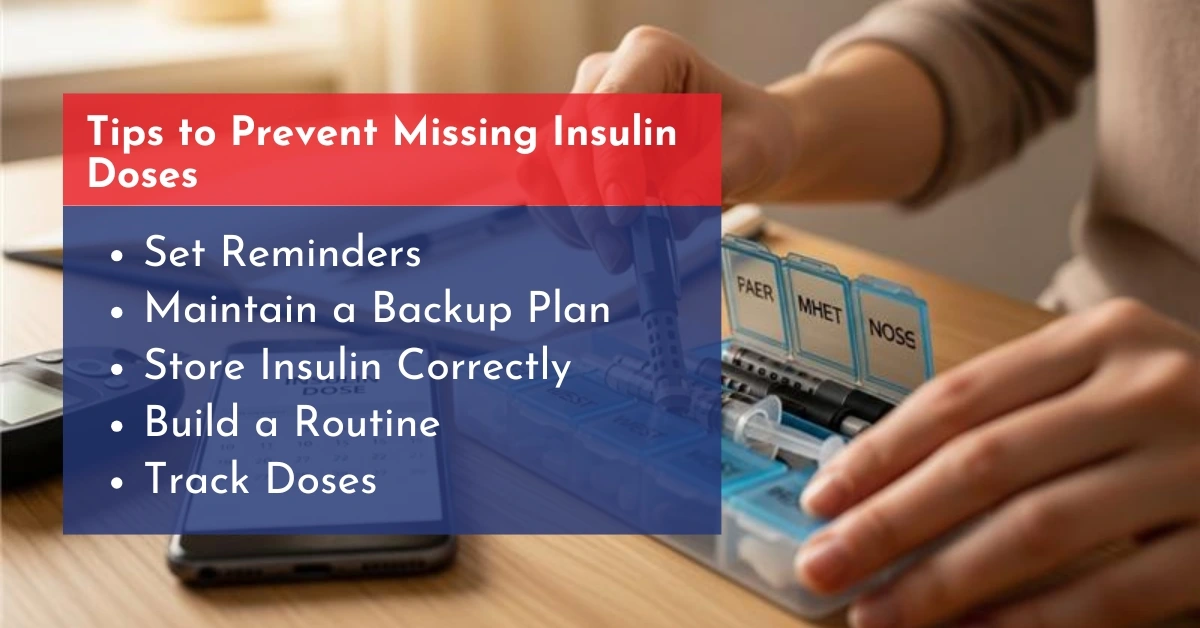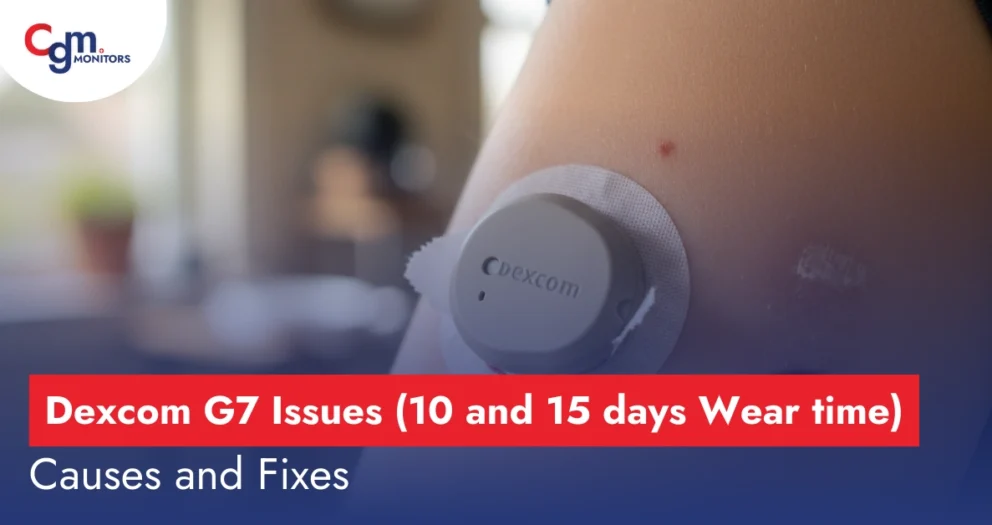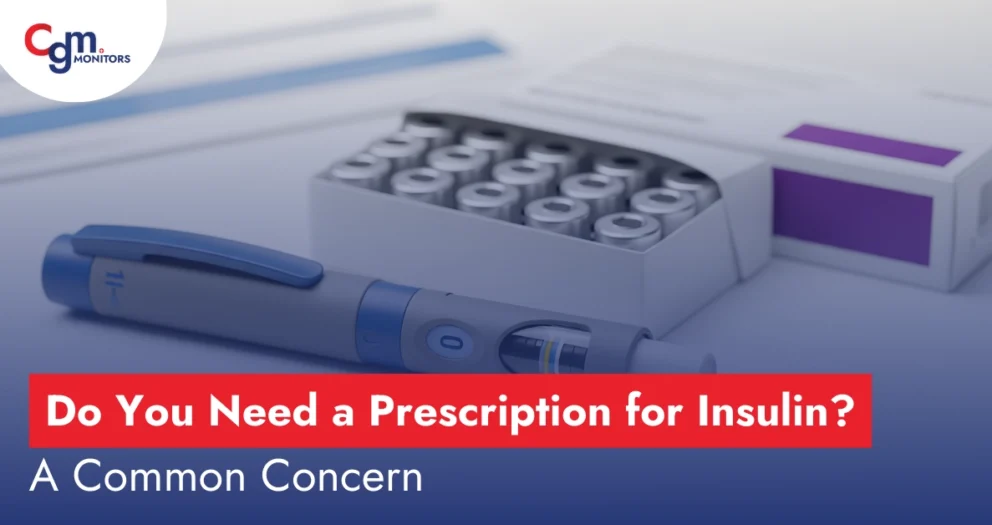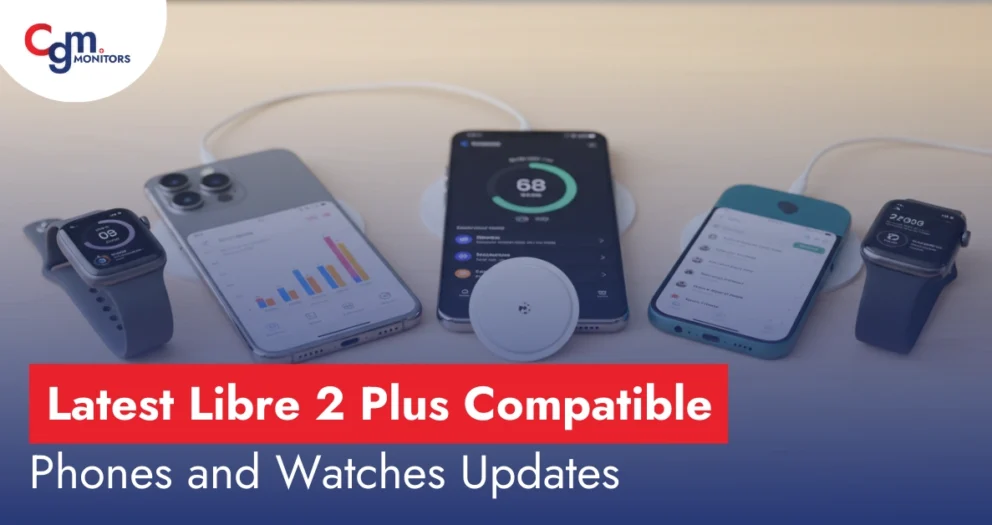Table of content
- The Role of Insulin in Type 1 and Type 2 Diabetes
- What Happens If You Forget to Take Insulin?
- Common Symptoms When You Miss an Insulin Dose
- What Happens If You Miss a Dose of Lantus?
- What to Do If You Do Not Have Insulin with You?
- How to Safely Handle a Missed Insulin Dose
- Tips to Prevent Missing Insulin Doses
- Conclusion
- Question Related to Missed Insulin
If managed well, diabetes is just a health condition. The management of diabetes requires a multi-dimensional approach. Taking timely insulin dosages is one of the key aspects in maintaining stable blood sugar levels. Missing even one dose can lead to negative symptoms and complications; however, if you have missed one, taking abrupt action can do the job. Here, we have highlighted the missed insulin dose symptoms and how to correct them.
The Role of Insulin in Type 1 and Type 2 Diabetes
Insulin is essential for transporting glucose (sugar) from the bloodstream into cells for energy. Without insulin, blood glucose rises to dangerous levels.
- Type 1 Diabetes: The pancreas produces little to no insulin. Daily insulin injections or insulin pumps are vital for survival. Missing even a single dose can lead to rapid complications like DKA.
- Type 2 Diabetes: While some people manage with oral medications, many eventually need insulin due to insulin resistance or reduced insulin production. Missing insulin in Type 2 may not trigger immediate emergencies, but can worsen long-term complications like kidney disease, nerve damage, or heart disease.
Maintaining an insulin injection schedule is therefore non-negotiable for both types of diabetes.
Did you know?
Continuous glucose monitors (CGMs), such as Freestyle Libre 2 Plus Sensors and Dexcom G7 Sensors monitor your blood sugar 24/7, most give high or low glucose alerts, and are even compatible with automatic insulin delivery (AID) systems.
What Happens If You Forget to Take Insulin?
Whether you have type 1 diabetes or type 2 diabetes, missing an insulin dose can lead to an increase in blood glucose levels. In type 1 diabetes, where the body produces little to no insulin, skipping a dose can result in a dangerous rise in blood sugar. In type 2 diabetes, though the body still produces insulin, it’s often not enough due to the cells being insulin-resistant, and this leads to similar consequences.
If you forgot to take insulin before a meal or skipped a dose entirely, the immediate effects can range from mild symptoms like increased thirst to more severe reactions, such as diabetic ketoacidosis (DKA), especially in type 1 diabetes missed insulin dose.
While taking insulin in moderation and consuming liquids may do the job, in severe conditions, contact your diabetes team immediately.
Common Symptoms When You Miss an Insulin Dose
Here’s a breakdown of common symptoms when you forgot your Lantus dose or missed other insulin types:
1. High Blood Sugar (Hyperglycemia):
- Symptoms: Increased thirst, frequent urination, weakness or extreme tiredness, blurry vision. If not treated, as per mayoclinic, the later symptoms include abdominal pain, nausea or vomiting, difficulty breathing, confusion, and even unconsciousness.
- Cause: Missing insulin means your body can’t effectively regulate glucose levels.
2. Diabetic Ketoacidosis (DKA) – Especially in Type 1:
- Symptoms: Nausea, vomiting, fruity-smelling breath, rapid breathing, and confusion.
- Cause: If insulin is missed for too long, the body starts breaking down fat instead of glucose, leading to ketone buildup.
According to the Mayo Clinic, DKA is a severe complication of missing insulin, especially for type 1 diabetics.
3. Fatigue and Weakness:
- Symptoms: You might feel unusually tired or weak.
- Cause: Without insulin, your body cannot efficiently use glucose for energy.
4. Increased Hunger (Polyphagia):
- Symptoms: Despite high blood sugar, your body feels deprived of fuel and may signal hunger.
- Cause: Missing insulin hinders glucose absorption by cells, leading to hunger.
5. Dry Mouth and Thirst:
- Symptoms: Dehydration and a dry mouth.
- Cause: High blood sugar levels cause the body to lose more fluids through urination, leaving you thirsty and dehydrated.
If a missed insulin dose is not addressed promptly, your condition may get worse. Immediate action is needed to prevent complications like DKA.

What Happens If You Miss a Dose of Lantus?
If you missed an insulin dose or forgot a Lantus dose, it can affect both long and short-acting insulin. Missing it may cause blood sugar fluctuations, leading to periods of hyperglycemia and increased ketone production in the body, especially if multiple doses are skipped.
Unsure what Lantus is? Lantus is a long-acting (24-hour) insulin glargine injection for both type 1 and type 2 diabetes. Having 100 units/mL, this injection is available in a 3mL prefilled pen for single patient use and a 10mL vial for multiple doses.
Note: In case of missing long-acting insulin like Lantus, you may need to take a correction dose of rapid-acting insulin after checking your blood glucose levels, as advised by your endocrinologist.
What to Do If You Do Not Have Insulin with You?
If you are away from home and forgot to take insulin last night, or you do not have insulin with you, in such cases, the best course of action is:
- Contact a healthcare provider: If you don’t have insulin, ask for advice on how to proceed. You may need to find a nearby pharmacy or health centre to get a dose.
- Consume what improves insulin sensitivity: You may consider keeping pumpkin seeds, almonds, peanuts, cashews, or flaxseeds with you as these foods can increase insulin sensitivity. Moreover, as Healthline says, consuming foods rich in protein, healthy fats, anti-oxidants, and vitamins may also help, e.g., broccoli.
Did you know that even people with diabetes can enjoy cookies? Discover our range of diabetes-friendly cookies designed to satisfy your sweet tooth without spiking your blood sugar.
How to Safely Handle a Missed Insulin Dose
- Monitor Your Blood Sugar: Use a glucometer or continuous glucose monitor (CGM) to check your current blood glucose level.
- Consult Your Care Plan: Follow the guidance provided by your diabetes educator or endocrinologist to decide whether to take the missed dose or modify your next scheduled dose.
- Avoid Doubling Up: Do not take extra insulin to compensate for the missed dose unless explicitly directed by a healthcare provider.
- Watch for Warning Signs: If you experience symptoms of diabetic ketoacidosis (DKA) or severe high blood sugar, seek immediate medical attention.
Tips to Prevent Missing Insulin Doses
Staying consistent with insulin is vital for effective diabetes management. Follow these practical steps to ensure you never miss a dose:
- Set Reminders: Use phone alarms, diabetes apps, or specialized insulin reminder devices to prompt you daily.
- Maintain a Backup Plan: Keep a diabetes management kit with extra insulin supplies for emergencies.
- Store Insulin Correctly: Ensure proper storage at home and during travel to prevent spoilage and maintain effectiveness.
- Build a Routine: Align insulin doses with daily habits, like meals or bedtime, for seamless integration.
- Track Doses: Log your injections in a diabetes journal or use a CGM-connected app to monitor your schedule.

Conclusion
Skipping insulin doses can result in result in multiple complications, including but not limited to frequent urination, extreme tiredness, blurry vision, shortness of breath, and even diabetic ketoacidosis (especially in individuals with type 1 diabetes). In case of forgetting your insulin dose, which is common, do not panic, but take immediate action, including calling your doctor (when required). Make sure not to consume double doses, i.e., taking a missed dose close to your second dose – it can lead to hypoglycemia (low blood sugar).
Moreover, maintaining normal blood sugar levels in your body is critical, as prolonged high blood sugar can lead to various complications, including severe ones. CGM sensors are helping people with finger-prick-free (as they reduce the need for finger-prick testing) glucose monitoring. Plus, the latest ones can even be used with automatic insulin delivery (AID) systems such as Ominpod 5 – get a benefits check now with CGM Monitors and receive your supplies without any shipping costs (within the US) at your door.
Disclaimer: This is only for informational purposes and does not substitute your doctor’s advice. Always consult your doctor before taking any medical action.
Question Related to Missed Insulin
What is missed insulin dose symptoms and why is it important?
Missed insulin dose symptoms are signs of hyperglycemia, meaning elevated blood glucose levels. Common symptoms include excessive thirst, frequent urination, fatigue, blurred vision, and possible ketone buildup due to lack of insulin. Recognizing these signs early is critical to prevent serious complications like diabetic ketoacidosis (DKA) and to maintain stable blood sugar control.
How quickly do symptoms of a missed insulin dose appear?
Symptoms can appear within a few hours if short-acting insulin is missed, causing rapid post-meal glucose spikes. For long-acting insulin, symptoms often develop gradually over 12–24 hours as basal insulin levels decline. Seniors may experience more severe reactions, such as dizziness or collapse.
How should I respond if I realize I've missed an insulin dose?
Check your blood sugar immediately using Libre or Dexcom CGM sensors and test for ketones if levels are high, especially in type 1 diabetes. If within 2–4 hours, you may take the missed dose; otherwise, use a correction dose as advised. Never double the next dose without consulting your doctor.
What are the immediate symptoms of a missed insulin dose?
Immediate symptoms include increased thirst, frequent urination, fatigue, and blurred vision caused by rising blood glucose. In more severe cases, nausea, vomiting, ketone buildup, seizures, or confusion may occur, particularly if short-acting insulin is missed.
Why does a missed insulin dose cause thirst and frequent urination?
Without enough insulin, glucose accumulates in the bloodstream. The kidneys attempt to remove excess glucose through urine, pulling water with it, which leads to dehydration, increased urination, and intense thirst.
Why is it dangerous to ignore symptoms of a missed insulin dose?
Ignoring symptoms allows blood sugar to rise unchecked, significantly increasing the risk of diabetic ketoacidosis. Untreated DKA can cause coma, organ failure, paralysis, or death, especially in people with type 1 diabetes.
When should I take a missed insulin dose after realizing the error?
Take the missed dose as soon as you remember if it is within 2–4 hours of the scheduled time and your blood sugar level allows, as confirmed by Libre or Dexcom sensors. If it is close to the next dose, skip it, correct high glucose separately, and consult your healthcare provider.
What is the psychological impact of missing insulin doses?
Missing insulin can trigger guilt, anxiety, frustration, or diabetes burnout. This emotional stress may worsen adherence and blood sugar control, creating a cycle of poor management and increased mental strain.
What are the risks of taking a double dose of insulin to compensate for a missed one?
Doubling insulin without understanding current blood glucose levels can cause severe hypoglycemia, leading to shakiness, confusion, seizures, coma, or death. Improper dosing without CGM guidance has resulted in fatal outcomes according to FDA reports.
What are the differences in symptoms if I miss long-acting versus short-acting insulin?
Missing short-acting insulin causes rapid post-meal glucose spikes with quick onset of thirst, urination, and fatigue. Missing long-acting (basal) insulin leads to slower but sustained glucose rises, higher fasting sugars, and increased ketone risk over time.







Write a comment
Your email address will not be published. All fields are required